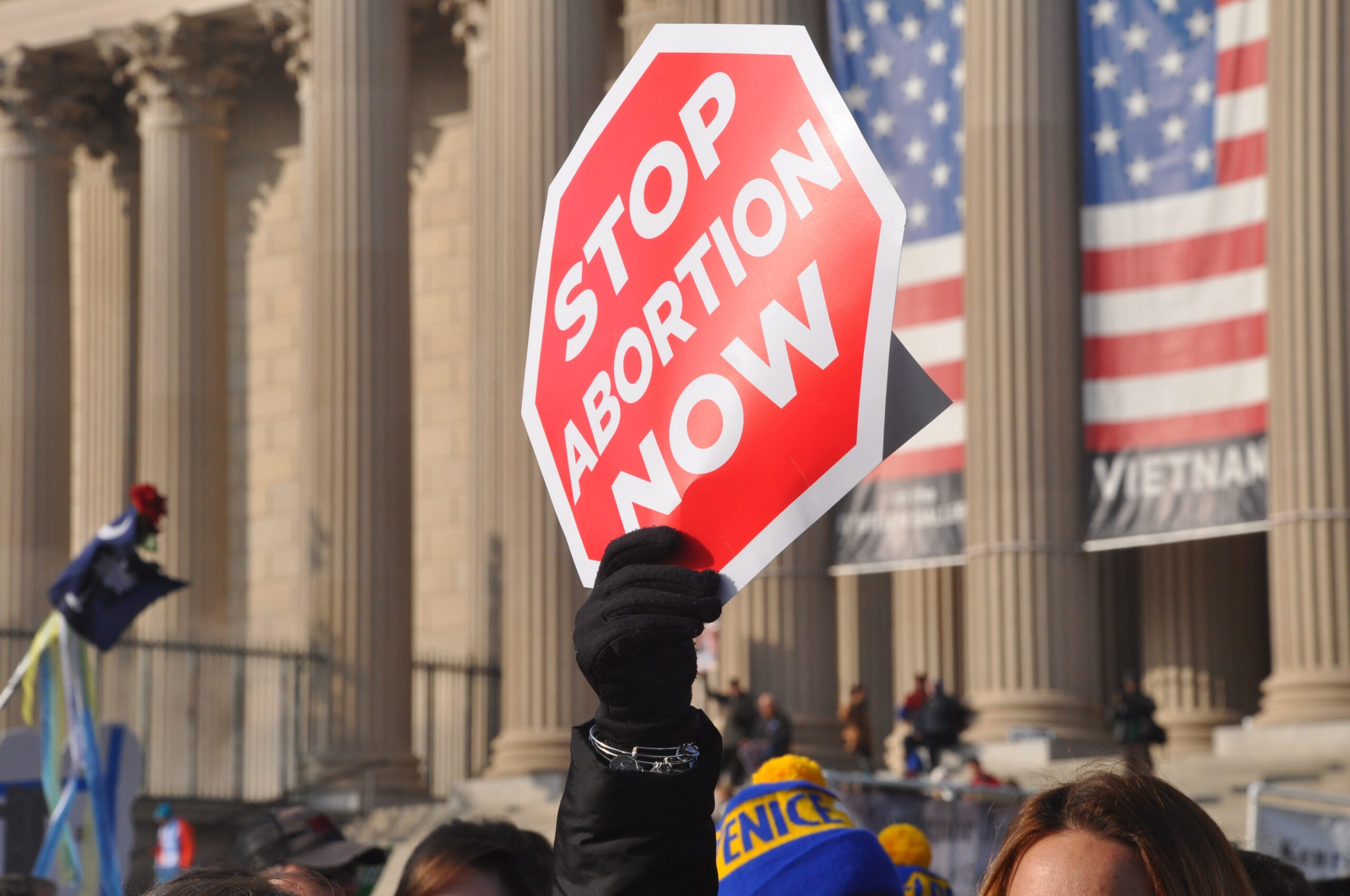Packed with far-right radicals during the Trump presidency, the Supreme Court is well-positioned to overturn Roe v. Wade.
In several articles written over the past few years, I have warned readers that a United States Supreme Court illegitimately packed with far right-wing Christian justices might overturn Roe v. Wade, the 1973 decision that established a constitutional right to abortion by locating a right to privacy in the Fourteenth Amendment’s due process clause. Quite a few pundits have long since dismissed this possibility, suggesting not only that Roe was settled law, but also, cynically, that the Republican Party needs Roe v. Wade as an ongoing campaign issue to play to its white Christian base and would thus never allow it to be overturned. But these pundits are, for the most part, not informed by intimate lived experience of the Christian right, so they underestimated the power of its zealotry.
In one sense only, they might nevertheless be proven correct. If the Supreme Court’s majority of conservative justices decides not to explicitly overturn Roe—because they want to avoid the fallout that would come from officially taking away a constitutional right, while still de facto ending that right—they will only be able to do so because the five most radical justices have already rendered the case a dead letter. “The Supreme Court ended Roe v. Wade,” wrote constitutional lawyer Andrew Seidel on September 2, a day after the court allowed Texas’s brutal Senate Bill 8 (SB8) to go into effect. The so-called “Texas Heartbeat Law” is deceptively named, given that electric activity is detectable in a fetus before an actual heart has formed. The scientifically inaccurate, rhetorically charged language of “unborn child” is also used throughout the legislation’s text.
Texas’s SB8 bans abortion after six weeks, which is only two weeks after it’s even theoretically possible for most women and trans men to know that they’re pregnant. In an even more twisted move, the law incentivizes abortion bounty hunting, empowering private citizens to receive at least $10,000 by suing not only abortion providers, but also anyone who “knowingly engages in conduct that aids or abets the performance or inducement of an abortion.” By crafting the law to provide for private enforcement without creating a mechanism for state enforcement, the legislators behind Texas’s law hope to insulate the state from legal action that might prevent the unconstitutional legislation from going into effect. Thanks to the right-wing partisan makeup of both the Fifth Circuit Court of Appeals and the post-Trump Supreme Court, the tactic worked.
When Texas passed SB8, a coalition of women’s health clinics and funders promptly sued, pointing to its immediate harm; the law would effectively halt safe and legal abortions in Texas. A district court scheduled a preliminary injunction hearing that could have stopped the law from going into effect while litigation proceeded, but the defendants immediately appealed to the Fifth Circuit, where a three-judge panel featuring two Trump-appointed judges halted that process. The Supreme Court then failed to rule on the Fifth Circuit’s decision, allowing the law to go into effect at midnight on September 1. On September 10, the same Fifth Circuit panel ruled that state officials are immune from legal action against SB8 because “S.B. 8 emphatically precludes enforcement by any state, local, or agency officials.” Legal maneuvering will continue, including a suit to block the law brought by the Biden Administration’s Department of Justice; in the meantime, Texas’s essentially theocratic law will remain in effect.
Andrew Seidel, who is Director of Strategic Response at the Freedom from Religion Foundation, told The Conversationalist matter-of-factly that “in a normal world, with an apolitical judiciary,” the “one weird trick” employed by Texas Republicans to ensure SB8 went into effect would not have worked. “Normally, when a constitutional right is so clearly and obviously threatened, the judiciary preserves the status quo before that threat can be realized,” he said. This is what the district court was in the process of doing before it was overruled. “Courts don’t typically allow monumental shifts in constitutional rights to occur without a full hearing first.” The Fifth Circuit thus violated longstanding norms with its decision.
“The court is basically saying if you want to challenge this law, someone needs to sue to collect the bounty,” summarized Seidel. In his opinion, this is “absurd, because 90 percent of abortions in Texas have stopped.” Because no abortion provider will risk a lawsuit, said Seidel, the “right to bodily autonomy has been gutted” in Texas. The legislation, he added, amounts to de facto “mob rule over the womb.” There are, undoubtedly, authoritarian Christian zealots who are eager to sue, backed by the deep pockets and organizational prowess of the far right. Already in July, in anticipation of SB8 going into effect, the extremist anti-choice organization Texas Right to Life created a “prolife whistleblower” website through which users could snitch anonymously on abortion providers or those who “aided and abetted” any Texan seeking abortion care.
Tech-savvy teenagers led a recent campaign, organized primarily on TikTok, to inundate the site with false and nonsensical reports in the hope of overwhelming those behind it, preventing them from using the information to do harm. Seemingly as a result of all the buzz, the internet hosting service GoDaddy declared the site in violation of its terms of service. Since a new service willing to host the site has not yet been found, the site’s URL currently redirects to the Texas Right to Life homepage.
But what of the Supreme Court’s role in allowing SB8 to stand, effectively giving the green light to abortion vigilantism? Without hearing any arguments on the case, the high court allowed SB8 to go into effect by denying, in a single paragraph, an emergency request from the Texas plaintiffs to stop it. This non-transparent action is an example of the court using what is often referred to as “the shadow docket.” Imani Gandy, Senior Legal Analyst at Rewire News, explained that the term is one “court watchers use to refer to the sort of docket behind the docket.” Unlike the regular docket, which Gandy describes as “a public-facing schedule of the court’s business,” the shadow docket refers to the court’s use of emergency procedures allowing it to take action in a case without the presentation of arguments from the parties.
The shadow docket, explained Gandy, is “a break from normal procedure,” in that its justices hand down decisions quickly and with little explanation. By contrast, normal procedure takes about a year from the submission of documents through presentation of oral arguments before the high court, to the rendering of a decision that involves the release of detailed, signed opinions. In this case, Gandy said, “What Texas did is essentially nullify Roe in the span of two weeks,” a fact that she calls “remarkable.” In her view, the Supreme Court behaved very strangely in allowing SB8 to take effect while the lower courts are still litigating its legality. “What the court should have done,” Gandy said, “is looked at this blatantly unconstitutional six-week ban and said we’re going to enjoin enforcement of this law by anybody until we can figure out what’s going on with this new private enforcement mechanism that Texas has cooked up.”
Gandy called this “unacceptable judicial procedure” because of the non-transparent way in which “it allowed the Supreme Court to do what we had been afraid the Supreme Court was going to do, but without showing its work,” which Gandy objects to as “underhanded dealing outside the view of the public.” The high court did not explain “why it believes that this six-week ban may be constitutional, or at least constitutional enough to go into effect in Texas while the constitutionality of the law is being litigated,” she said. Instead, the court simply unleashed right-wing Christian culture warriors to harass vulnerable Texans in a devastating way, in addition to giving a tacit greenlight to other Republican-controlled states to pass similar bans.
The Supreme Court might still officially overturn Roe. In Gandy’s view, the court’s action in the Texas case “signals that Roe is very much up for grabs” in a Mississippi abortion ban case the court has also agreed to hear. But whether the court overturns this major precedent or not, the federally protected right to abortion care is effectively dead. Same-sex marriage and access to contraception will probably also take their turns on the judicial chopping block.
Asked what citizens can do to fight back against this brazenly partisan judicial activism and overreach, Seidel did not equivocate. “Whatever chaos reigns over the next few months, we are coming to a point where Roe v. Wade is dead and buried. The DOJ can get involved, Congress can pass the Women’s Health Protection Act, and those things should happen, but this court is still going to get a final say on all of it.” The only solution that might have a lasting impact, Seidel said, was to expand the federal courts. “Trump, McConnell, and the Federalist Society packed the courts. They’re gone for a generation. That is the underlying problem that we need to solve.”
If we fail to restore fairness, America almost certainly faces a future of minority authoritarian rule. As Max Fisher recently laid out in The New York Times, the state of women’s rights in a country tends to be a good indicator of how democratic or authoritarian it is. Where women’s rights are expanding, an overall process of democratization is generally taking place. And where women’s rights are contracting, so are democratic norms and freedoms. Only three countries have curtailed abortion rights since 2000. Two of them are Nicaragua and Poland. The other is the United States of America.



